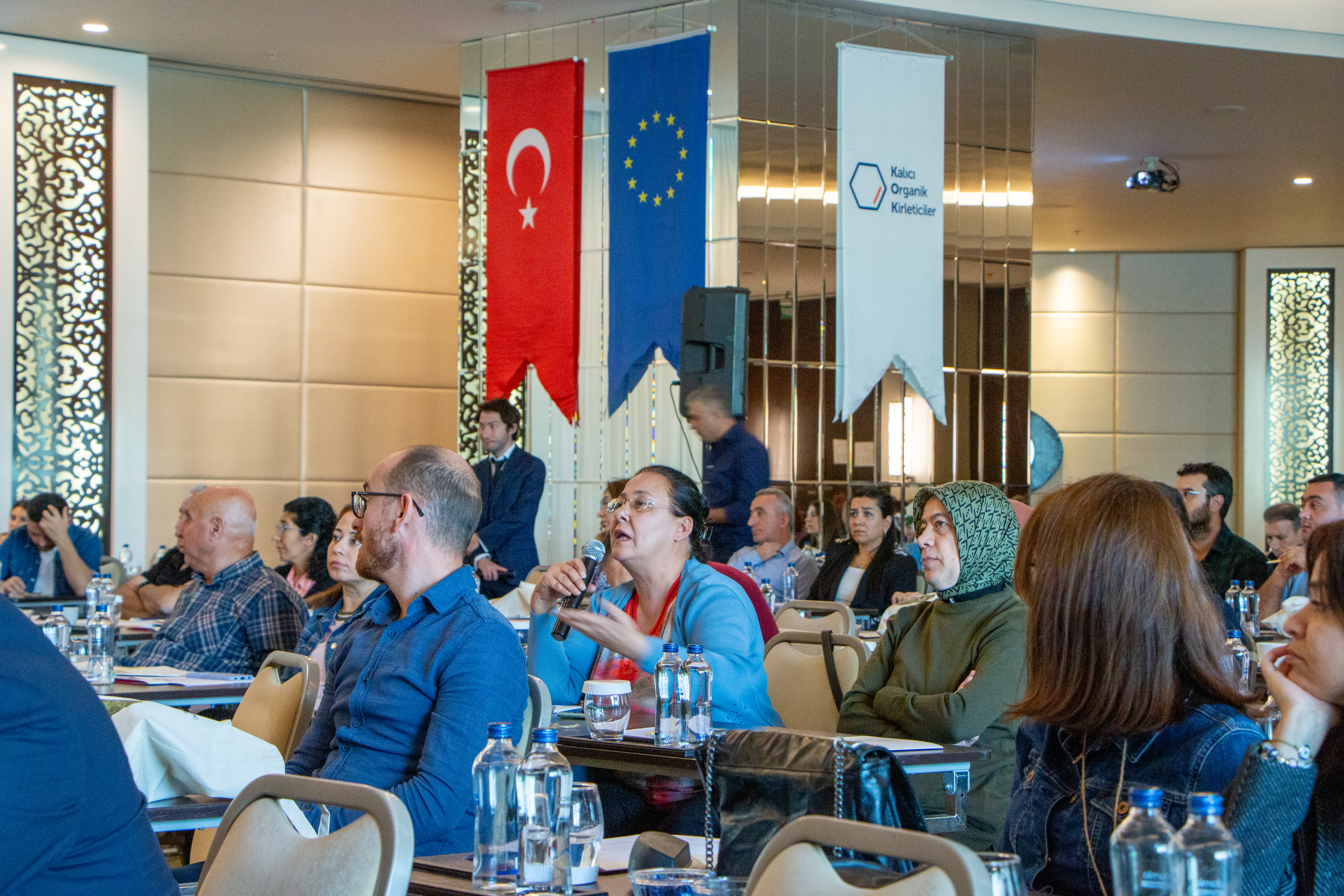UNDP furthers its training programs to support remediating sites contaminated by persistent organic pollutants
December 26, 2023

168 trainees from 76 provinces completed the training on control of soil pollution.
The United Nations Development Programme (UNDP) implemented a training between 15 and 17 November 2023 for the personnel of the Ministry of Environment, Urbanization and Climate Change (MoEUCC) with a focus on soil pollution and contaminated sites remediation. 168 representatives from central and provincial directorates of the Ministry from 76 provinces of Türkiye attended the training in Antalya.
Persistent Organic Pollutants (POPs) are hazardous substances composed of organic chemical compounds and mixtures. These pollutants remain in the environment for a very long time; contaminate the soil, transmit through air and water; and accumulate in human body, causing sicknesses including cancer, endocrine, and immune system problems.
Elimination of the adverse effects of POPs and their disposal requires meticulous work and immense technical knowledge. UNDP’s EU-funded initiative launched in 2019 has been providing technical studies, training and workshops to the personnel of the MoEUCC in Türkiye. Further, the experts of the project have been working on revising the regulations and guidelines in the subject matter for better management of contaminated sites with POPs.
During the training program, the revised regulation was introduced to the participants, helping them enhance their understanding of the standards and implications of the Turkish regulation on contaminated sites and POPs.
The €2 million initiative is a part of UNDP Türkiye’s Climate Change and Environment Portfolio and aims at achieving the Sustainable Development Goal (SDG) 3, Good Health and Wellbeing; SDG 6, Clean Water and Sanitation; and SDG 12, Responsible Consumption and Production as the project is targeting to decrease the adverse effects of hazardous chemicals on soil caused by industrial production.
The project team and a delegation of the Ministry also conducted a study visit to Italy in November where they examined the scientific studies of the EU Joint Research Centre in Ispra on POPs and emerging pollutants, and visited facilities remediating contaminated soils with innovative methods in Calcinate Municipality.
The project will continue its activities with the Contaminated Sites Information System training, targeting the provincial and central directorates, in January 2024.

 Locations
Locations



